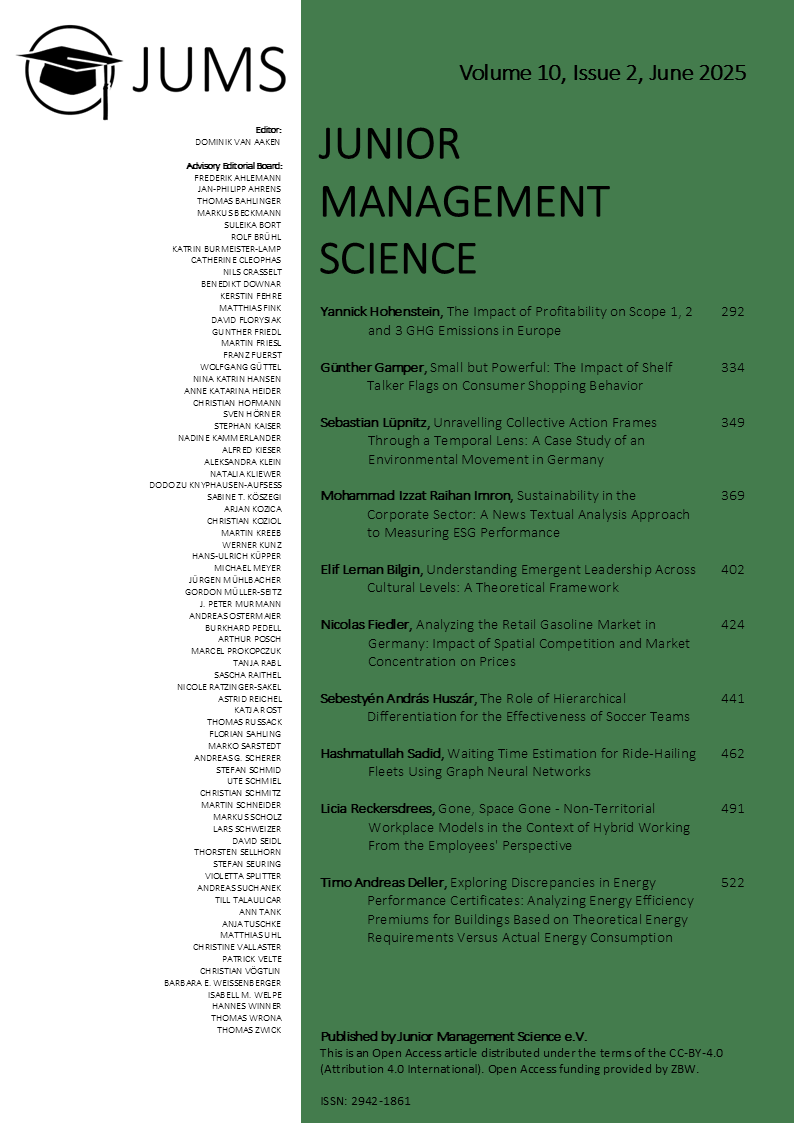Abstract
Organizing collective action in the face of climate change is one of the grand challenges of our time. Social movements and their approach to framing climate change are pivotal, as they are tasked with the role of challenging and redirecting dominant beliefs and narratives. Recent research suggests that time is at the core of framing and sustainability. However, there is scant research at the intersection of social movements and time. This study responds to this gap by examining how the framing of the environmental movement Letzte Generation in Germany constructs temporality. My findings reveal how the movement frames climate change as a catastrophe, representing itself as a fire alarm to create a shared sense of urgency and advocate for a crisis mode. Temporally, the framing constructs a clear chronology between a dominant past and an undesirable future and aims to redirect the focus to the present. As a result, the movement had to actively orchestrate a balance between disruptive strategies aimed at attention and polarization, and alignment strategies to foster resonance and support. By conceptualizing temporality in framing processes my study illustrates the pivotal role of time in research on social movements and framing. Moreover, it contributes to the discourse on time and sustainability by showing how actors emphasize a present-time perspective.
Keywords: climate crisis; polarization; social movements; strategic framing; time and temporality

Dieses Werk steht unter der Lizenz Creative Commons Namensnennung 4.0 International.
Copyright (c) 2025 Sebastian Lüpnitz

